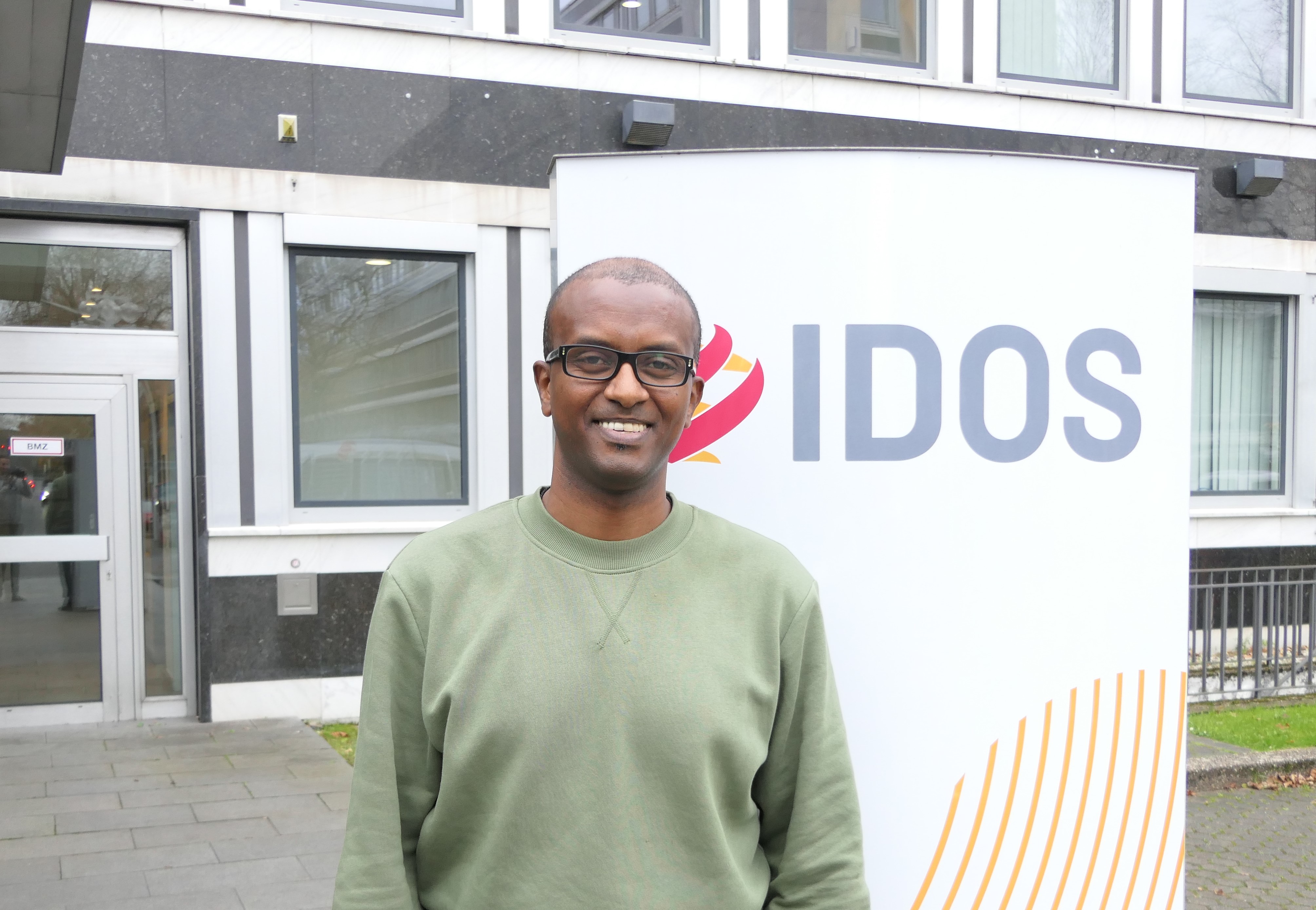
Abis Getachew Makuria
Current affiliation
- Esurv Consults (Consultancy firm working)
Hosting institute
Contact
- Email: …
Key expertise
- Forced Migration
- Refugee Economies
- Social Cohesion
- Informal Sector
- Labor Market
Regional expertise
- Äthiopien
- Dschibuti
- Südsudan
- Somalia
Profile according to FFVT taxonomy
Fields of research
- Development Research
- Migration Research
Scientific topics
- Economy Of Forced Migration
- Refugee Camp
- Work / Labour Market
Disciplines
- Economics
Professional Career
Economics
Relevant publications
- Agblorti, S. K. M., Getachew, S., Kuhnt, J., Muhumad, A. A.. Local integration of refugees: Integrated (public) service provision and the difficulties of diverging standard. 2023. Journal of Refugee Studies.
- Getachew, A.. Refugee-Led Organisations in East Africa: Community Perceptions in Ethiopia. 2022. Ethiopia.’ Refugee-Led Research Series, Research Report (4).
- Getachew, A., Gitahi, M., Kara, A., Ramazani, U. . Refugee-Led Organisations in East Africa: Community Perceptions in Kenya, Uganda, Ethiopia and Tanzania. 2022. Refugee-Led Research Series, Research Report (1).
- Getachew, A., Gitahi, M., Ramazani, U. , Yousuf, A.. When displaced persons lead research: experience from East Africa. 2022. FMR 701.
- Getachew, A.. Turnover-Based Presumptive Taxation and Taxpayers’ Perceptions in Ethiopia. 2019. ICTD African Tax Administration Paper 7, First published by the Institute of Development Studies.
Research profile
Q1. Who are you?
Abis Getachew has been working on research related to forced displacement for more than 10 years. Parts of his research include; refugee economies, refugee led organizations, social cohesion in the context of forced displacement and conflict, labour market inclusiveness/discrimination and refugee education. Currently Abis is a researcher at Esurv Consults, a consulting firm specialising in forced migration.
Q2. What was your motivation to apply for the FFVT fellowship? Why Germany?
Primarily I am motivated by the diverse research interests and expertise of FFVT researchers. It seems to me that I can learn from these researchers. In addition, I feel that I will be able to share my experience which will create a potential collaboration with different researchers. German institutions are blessed with a variety of quality researchers that I will be able to learn from a lot and have a collaboration.
Q3. What do you expect from the fellowship?
I will be able to start building academic collaborations and opportunities to brainstorm together with colleagues at IDOS and other FFVT member institutions. Disseminating our research with the greater public and refugee communities in Germany and Ethiopia is another important expectation.
Q4. What is the focus of your work, and what is innovative about it? / What are your planned outcomes and activities for the fellowship period? And how do they relate to your FFVT hosting institution/ the FFVT cooperation project?
The focus of the project is employability of post GIZ-QEP TVET training in Ethiopia amongst the refugees and the host communities. The FFVT Fellowship enables me to visit FFVT research institutes that will allow me to meet different scholars working on employment and labour market in the context of forced migration. IDOS has several researchers engaged in social experiments and allows me to share experience and learn. The outcome of the fellowship is a journal article with colleagues at IDOS on the income and employment effects of the GIZ-QEP TVET training.